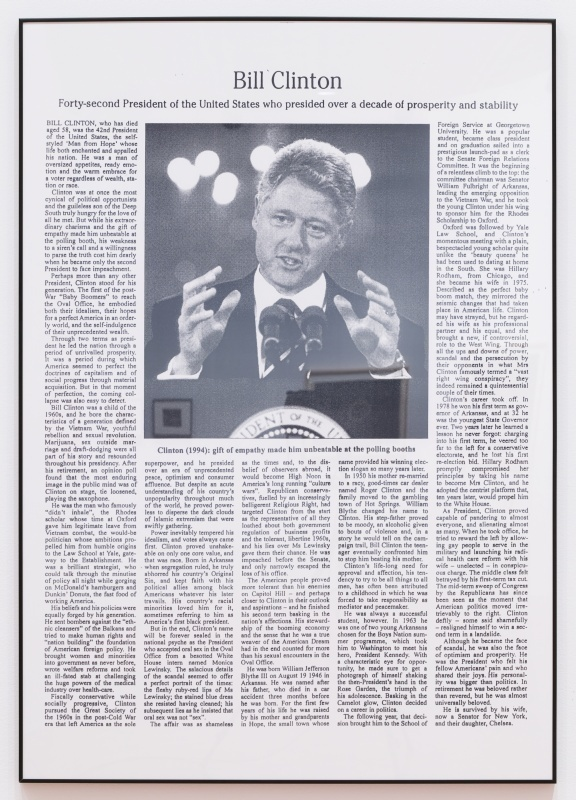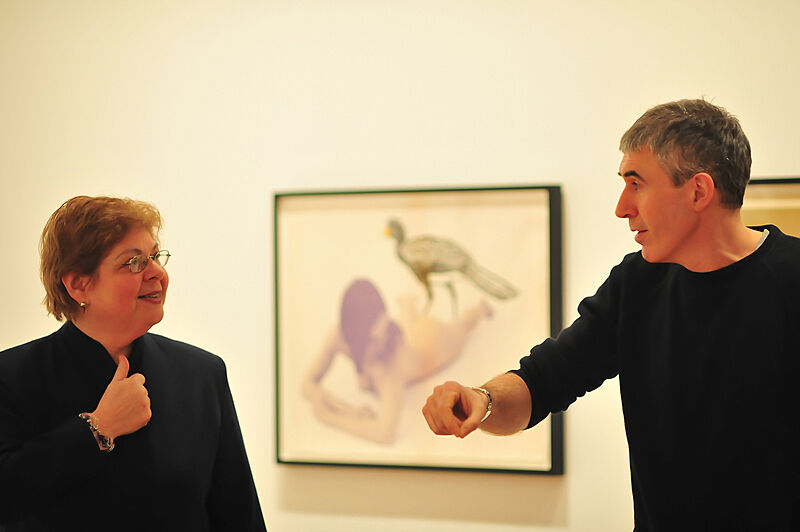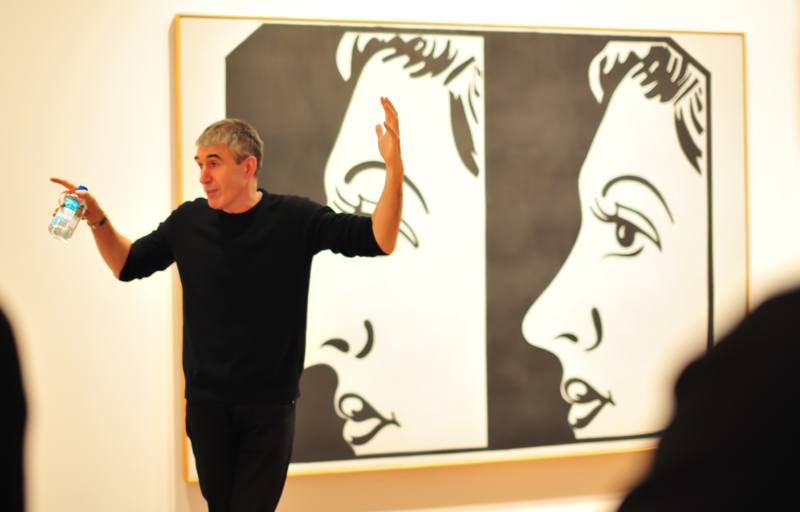Seeing Sinister Pop Through the Eyes of Adam McEwen
Feb 1, 2013
On Wednesday, January 23, artist Adam McEwen and Donna De Salvo, Whitney Chief Curator and Deputy Director for Programs led a gallery talk through Sinister Pop, an exhibition that focuses on the darker side of Pop art as it questions and critiques the American dream. The opportunity to accompany McEwen through the show and discover the ways in which he appreciates, engages with, and understands the works was a real treat for me. Drifting fluidly from gallery to gallery, McEwen shared anecdotes from his childhood and thoughts about how the works on view continue to amaze, inspire, and remain relevant to him, decades after their production.

Adam McEwen, Untitled (Bill), 2004, from a suite of seven. Chromogenic print, 52 3/4 × 37 in. (134 × 94 cm). 1/2 Artist Proof, edition of 3. Published by the artist. Whitney Museum of American Art, New York; purchase with funds from the Print Committee 2006.94.1

Like Andy Warhol and the other Pop artists of the 1960s, McEwen’s own work functions to jolt viewers out of their indifference toward the media that dominates their daily lives. Inspired in part by his job as an obituary writer for the British newspaper, The Guardian, McEwen produced a series of simulated obituaries for still living public figures and celebrities—such as former United States President Bill Clinton and artist Jeff Koons—which are dark, foreboding, and sardonic. He also acknowledged that many of the artists in the exhibition, including Ed Ruscha and Mel Ramos, have played a significant role in his artistic development.
Standing in front of Andy Warhol’s painting, Before and After 4 (1961) that depicts a nose both before and after it has been altered through plastic surgery, McEwen said: “This is the art that makes me want to make art. I wish I’d made it.” De Salvo noted that, to her, the Warhol painting is about the darker side of American assimilation, to which McEwen responded that in spite of the darkness associated with the desire to change oneself, this work also presents the brightness of actually being able to do so—in part by Warhol’s imaginative interpretation of a black-and-white newspaper advertisement and the increasingly affordable possibility for anyone to reinvent themselves by having a make-over.
Recounting a story he had once heard about Warhol and writer/performer Taylor Mead driving cross-country, McEwen paraphrased Mead as having said “the whole country is Pop and they don’t even know it yet." McEwen then marveled: I think the amazing thing about Pop is that you don’t have to do anything. . .Everything that is great is showing you what is in front of you.”
By Christopher Reade, Interpretation Intern

